On June 18, 2025, at the Third New Energy Vehicle Thermal Management Forum, Honeywell's market manager Lu Bin detailed the application and advantages of the HFO-1234yf refrigerant in automotive thermal systems. Since its introduction to automotive air conditioning in 2011, this refrigerant has gained widespread use globally, particularly in electric vehicles, showcasing significant potential. Its high performance, maturity, and safety make it an environmentally friendly alternative to R134a, contributing to global carbon reduction efforts. To meet the thermal management needs of new energy vehicles, Honeywell has launched the Solstice®454C blended refrigerant, which significantly lowers the boiling point of the R1234yf mixture by incorporating R32, thus enhancing low-temperature heating performance. Testing has shown that R454C outperforms traditional refrigerants in both cooling and heating efficiency, which helps improve the driving range and energy efficiency of electric vehicles while reducing system costs and carbon footprint. Honeywell's performance materials division focuses on three main areas: automation, aerospace, and energy transformation, specifically in cooling and heating technologies. Due to strategic adjustments, Honeywell plans to split into three independent companies: Honeywell Automation, Honeywell Aerospace, and a standalone chemicals business, expected to complete its independence by the end of this year or early next year, named SOLSTICE ADVANCED MATERIALS. This company will focus on specialty chemicals and materials, aiming for quality solutions backed by superior technology. SOLSTICE ADVANCED MATERIALS has two major R&D centers globally, located in the United States and China, with the latter situated in Zhangjiagang. The Zhangjiagang center is well-equipped for research on refrigerants, including significant investment in personnel and equipment for foundational studies in energy storage, electronic cooling, and HVAC heat pumps. The application of HFO-1234yf in automotive thermal systems began approximately 20 years ago, gaining traction particularly in electric vehicles from 2017 onward. As of the end of last year, over 220 million vehicles worldwide have adopted R1234yf, underscoring its vital role in global carbon reduction. The success of R1234yf can be attributed to its high performance, adaptability to existing systems, lower system costs, and compatibility with new technologies. Safety is a key consideration when developing or selecting refrigerants, particularly regarding flammability. Compared to R290, R1234yf demonstrates superior safety characteristics across various metrics. The assessment of refrigerant flammability includes factors such as minimum ignition concentration and energy. R290's minimum ignition energy is significantly lower than that of R1234yf, indicating a much higher risk. In terms of combustion rate and heat of combustion, R290 poses a much greater threat than R1234yf. R1234yf has been widely adopted in regions including North America, Japan, South Korea, and Europe for nearly a decade. Evaluations based on CLTC and WLTC standards indicate that R1234yf performs well in China’s winter conditions. With the increasing demands for temperature control and heating performance in new energy vehicles, especially in winter, Honeywell's Solstice®454C refrigerant, which contains 78.5% R1234yf and 21.5% R32, has shown promising results in improving heating performance in electric vehicles. Through extensive testing, including full vehicle tests with BYD models, R454C demonstrated superior cooling and heating capabilities compared to R134a, significantly reducing time to reach target temperatures and enhancing overall energy efficiency. The findings indicate that R454C can effectively support high-efficiency heat pump operation in extreme cold conditions without needing PTC heaters, thus lowering costs. Overall, Honeywell's HFO refrigerants demonstrate great potential for improving the thermal management of electric vehicles, providing a viable alternative to R134a and positioning themselves well within the growing market for new energy vehicles.
Honeywell Discusses HFO-1234yf Refrigerant Advantages for Automotive Thermal Systems

Images
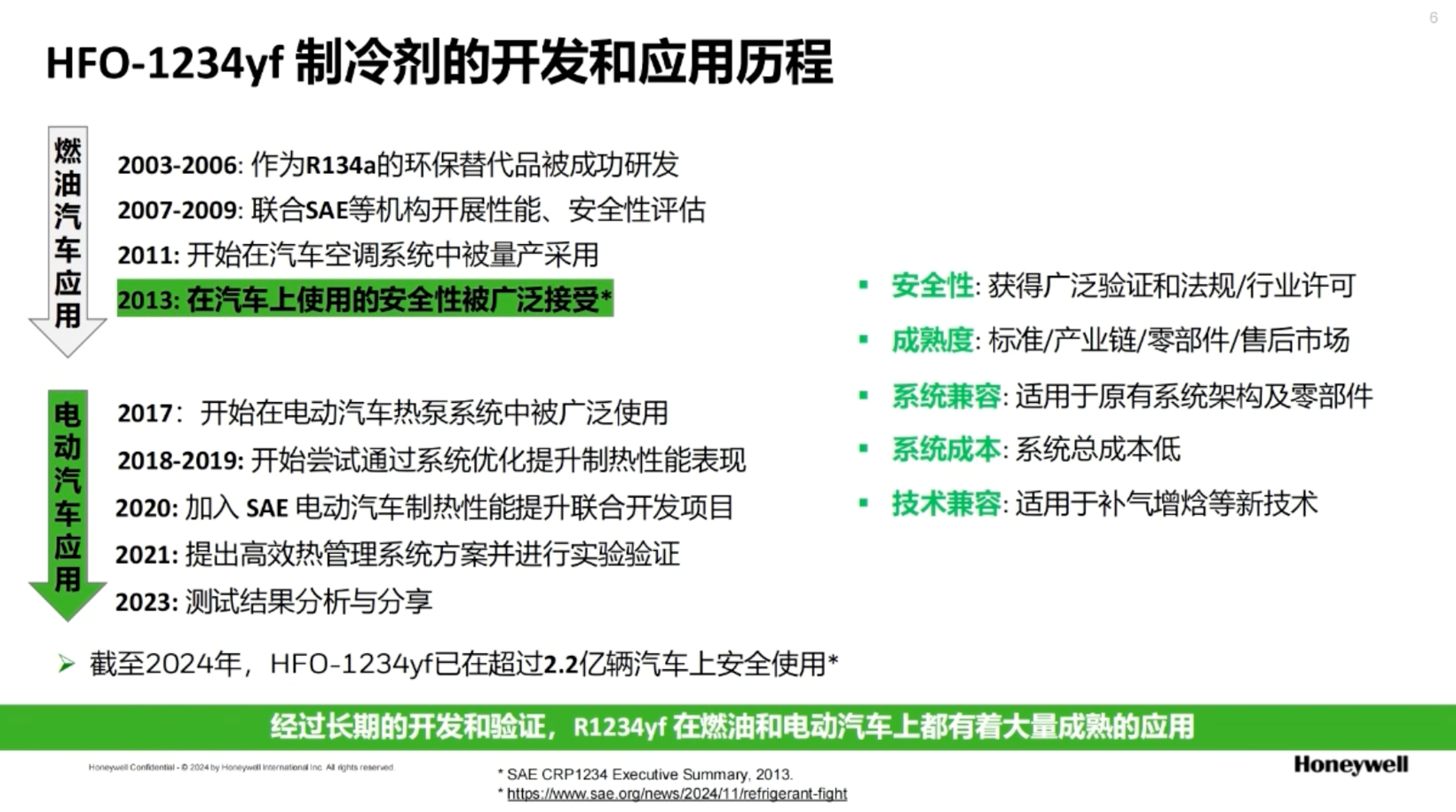
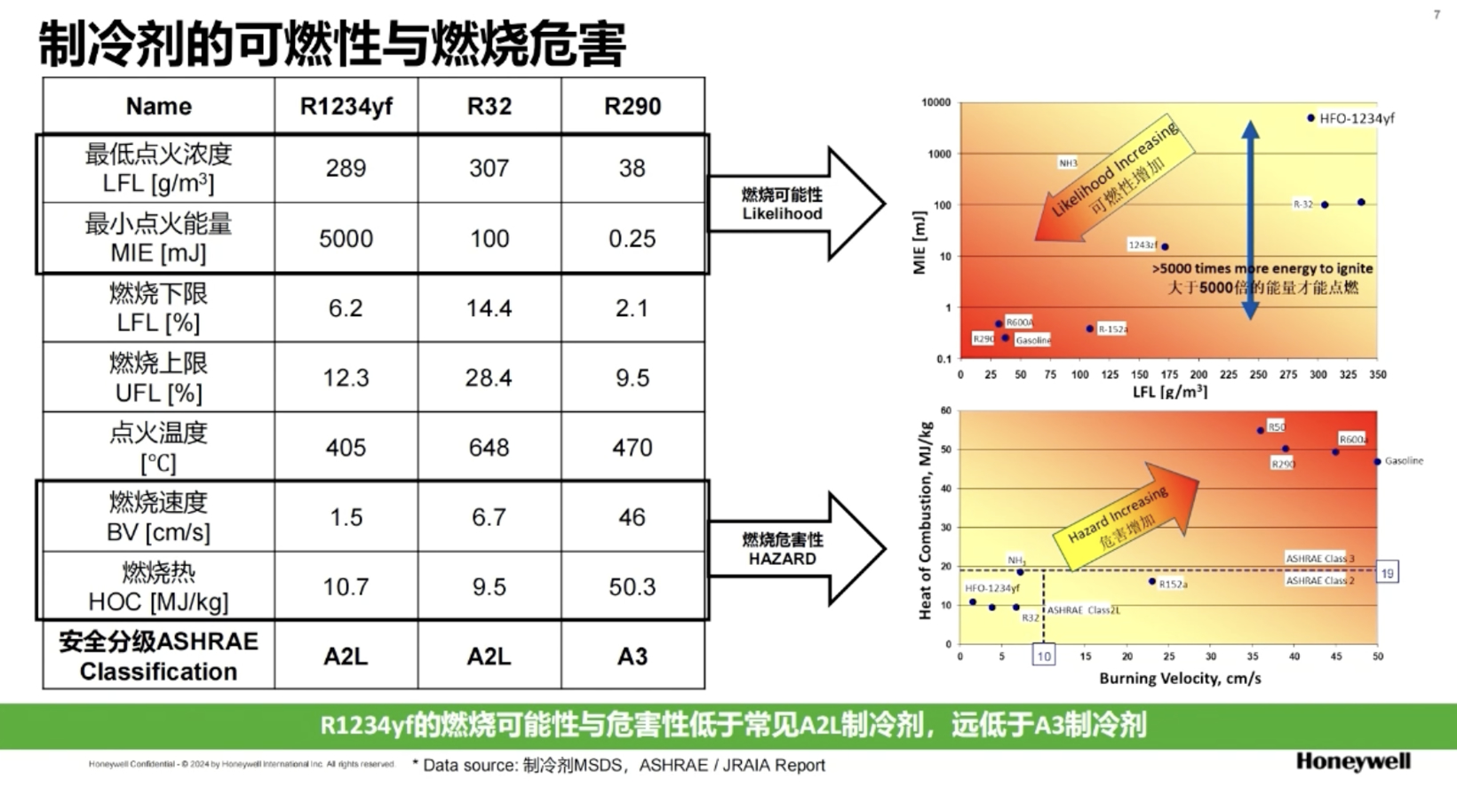
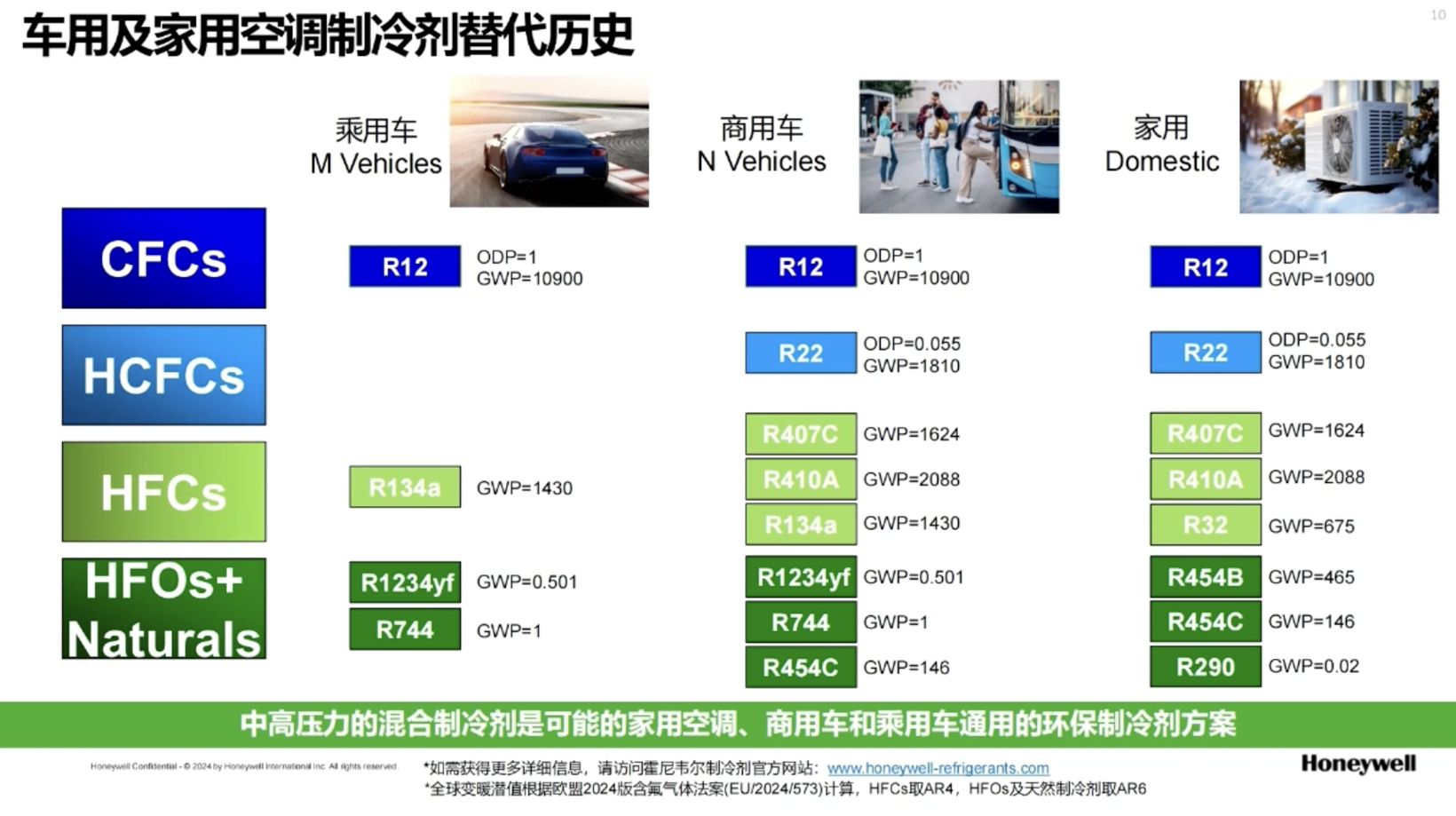
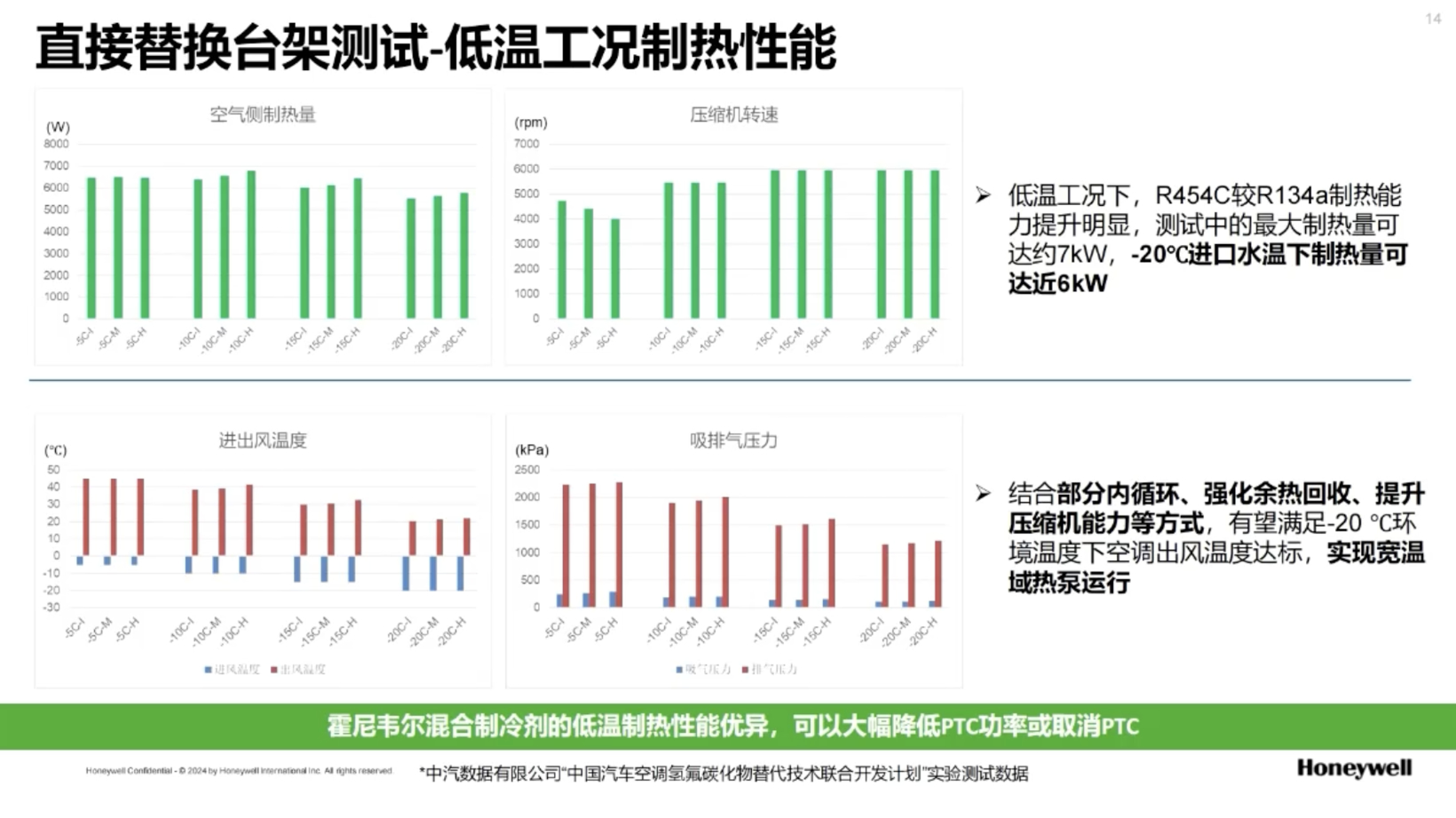
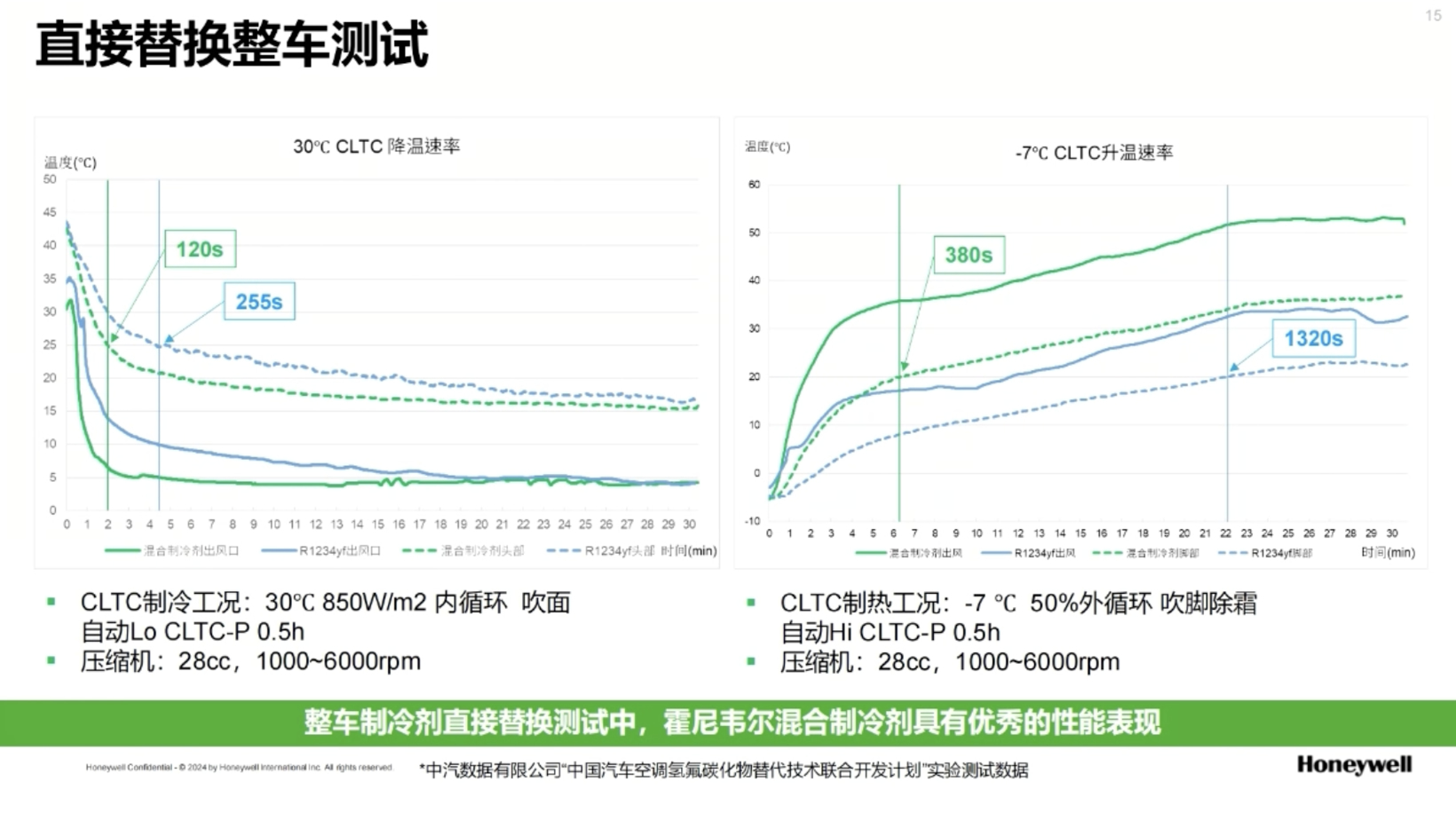
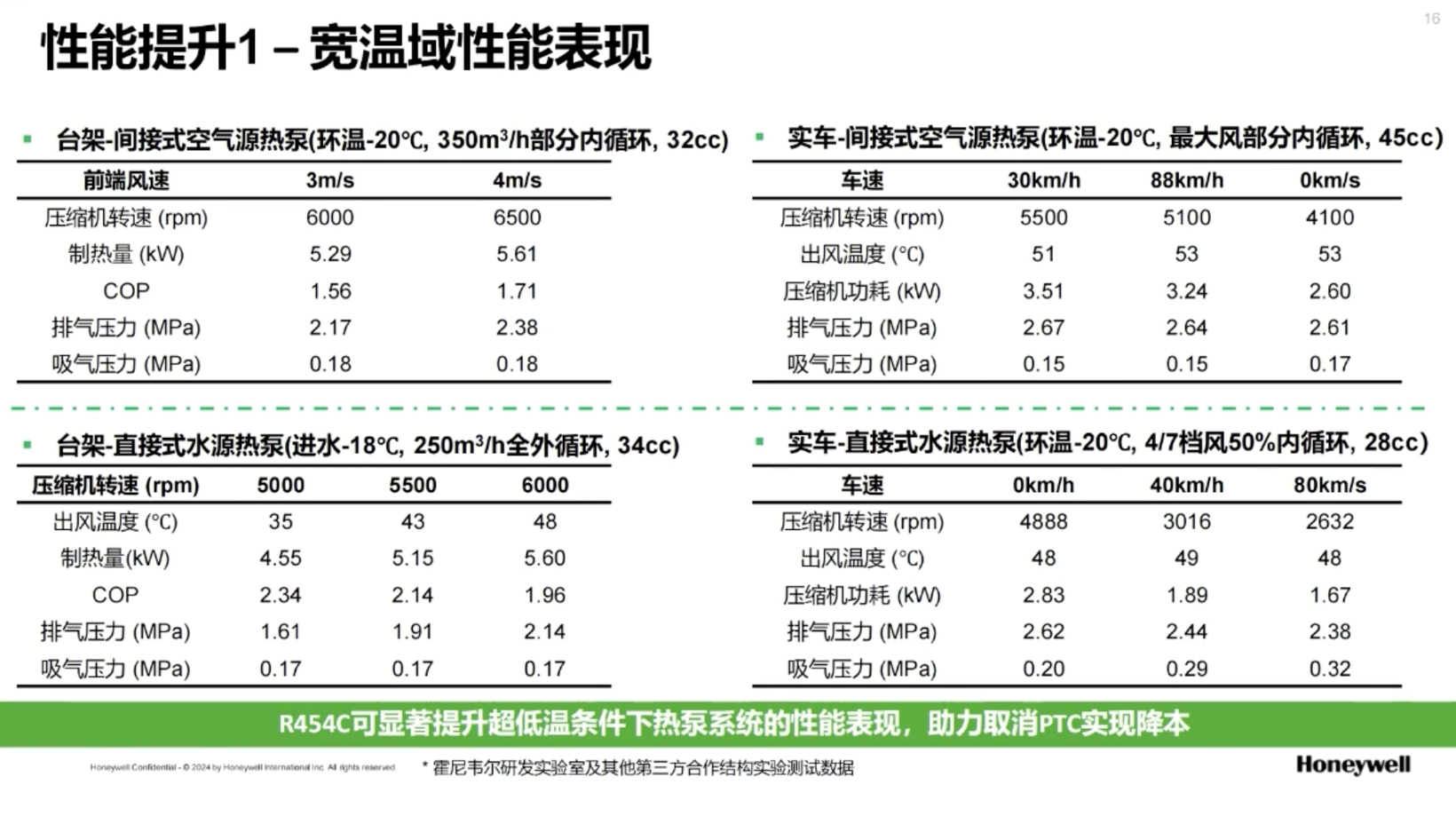
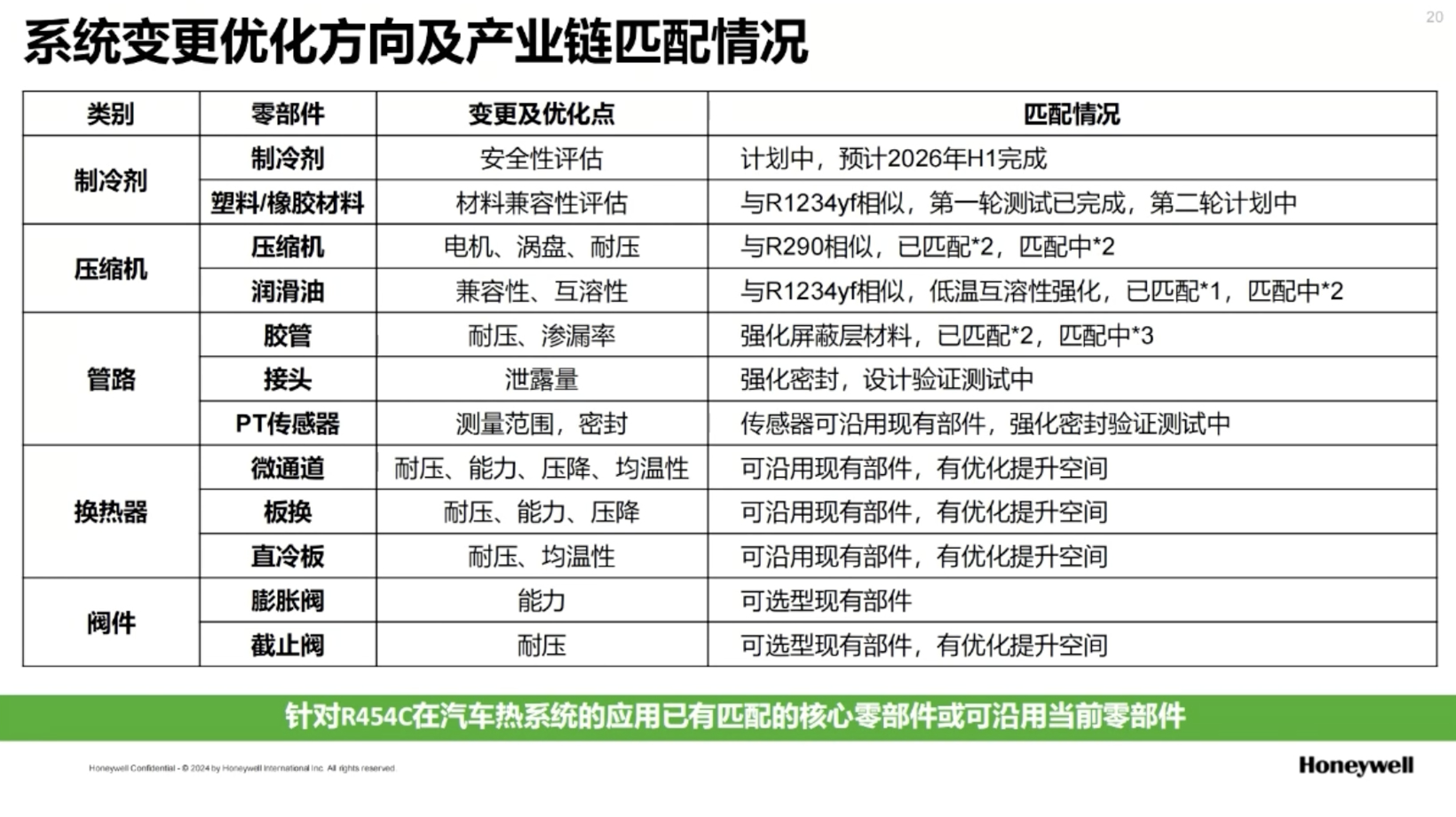
Share this post on: